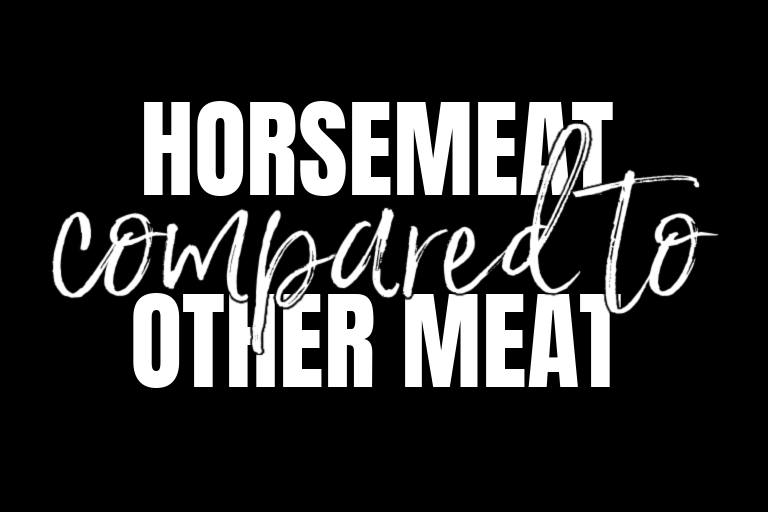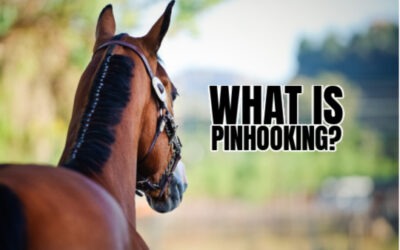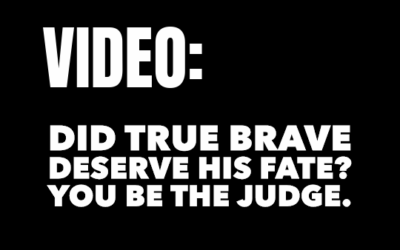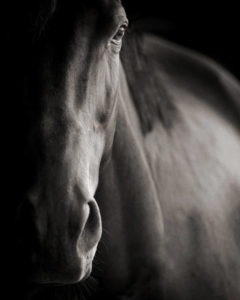WHAT’S DIFFERENT ABOUT HORSE MEAT VERSUS BEEF, PORK, LAMB, POULTRY OR ANY OTHER MEAT?
That is a fair question and one that those of us dedicated to ending the slaughter of horses in Australia – and beyond – for human consumption – or any other purpose, are frequently asked.
Let’s start by saying that many of our advocates have embraced the worldwide trend toward veganism.
Of course, not everyone is vegetarian or vegan – or interested in converting – we understand that.
But even so, there are many reasons why eating horses is different than eating meat from livestock that has been specifically raised to be slaughtered for meat.
First, many of the horses slaughtered in Australia are former pets and other horses, including racehorses, that have routinely been treated with drugs that are not intended for use on animals entering the human food chain.
For example, wormers. Ask your horse-owning friends how often they worm their horses.
Most horse owners worm their horses at least twice per year, and wormers are generally marked with instructions that they are not to be used on any livestock to be consumed by humans.
Another drug that is also not meant to be used on livestock entering the human food chain is a drug horse owners refer to as “bute”. The proper name is phenylbutazone.
Bute is used to treat everything in horses from minor muscle aches to inflammation to abscesses of the hoof, lameness, arthritis, and so much more.
Again, ask your horse-owning friends, and chances are good, that at one time or another, they have used bute on their horses.
BUT having said that we hear you, you’re probably thinking, okay this is Australia, surely food that is produced here is tested to make sure it is safe – right?
Food safety
Australia has a National Livestock Identification Scheme that ensures that all livestock produced for food can be identified and traced.
Australian horses are not bred for food and so they are not part of this scheme.
Horse Vendor Declarations and residue testing are supposed to guarantee that horse meat is safe to eat.
This system is completely flawed.
Horsemeat is NOT generally consumed in Australia by humans, but Australia does export horsemeat to other countries for human consumption. Help us educate those in other markets about the dangers of eating potentially toxic horsemeat.
No horse in the EU can be slaughtered for human consumption if it has ever been given Bute because it stays in the tissues for a lifetime.
However, Australian horses who are routinely given Bute, are being slaughtered for Europeans to eat.
European Commission audit findings:
Unreliable HVDs (Horse Vendor Declarations), residue tests do NOT correspond with the HVD.
Horse meat from Australia is NOT safe for human consumption.
Again, you would think that surely Australia has testing protocols in place… right? Keep reading.
It turns out that the testing regime of horsemeat in Australia tests 10 samples a year.
Yes, ONLY 10 samples out of 10,000 horses are tested for Phenylbutazone each year.
HUMANS AREN’T THE ONLY ONES AT RISK
In August 2021 ABC NEWS reported on how toxic horsemeat ended up in dog food sold in Australia that was supposed to be kangaroo meat.
WHY ARE PRODUCERS OF BEEN & OTHER MEAT NOT UP IN ARMS?
Meet Our Horse Meat has a question for producers of beef and other meats…
Why are beef producers and producers of other meat not outraged that they have to jump through hoops to ensure there are no dangerous residues in Australian beef and other meats exported to the EU?
Why is it that those sending horses to slaughter do not have to jump through the same type of hoops?
Why is it that any horse, including pets and racehorses, with dangerous toxic drugs, never meant to enter the human food chain can be slaughtered and their meat exported?
The Australian government claims to have a system in place to prevent food fraud, but the safety protocols for horse meat are seriously flawed.
#MOHM NEEDS YOUR HELP!
We’ve been threatened by those in the horse racing industry and those who benefit from horse slaughter more times than we can count.
But we are not going away.
We are going to persist until horse slaughter no longer exists for any purpose within Australia -- and until the horse racing industry makes drastic changes.
We are going to continue our hands-on work to offer lifelong sanctuary to as many horses as possible. We generally have 20 at just one of our locations - at any given time.
We have the acreage to take on more horses as financial support allows.
PINHOOKING
WHAT IS PINHOOKING?While the public sees fascinators, champagne, and glamour, we know the truth behind the racing industry: behind the glitz lies a world of greed, suffering, and exploitation. More and more Australians are beginning to see past the carefully crafted...
TRUE BRAVE
TRUE BRAVE'S FATEThe video above features short scenes of horses being slaughtered that may be triggering for some. True Brave met his end like thousands of others—in a flood of fear, abuse, and betrayal. These were horses taught to trust humans, only to be discarded...










